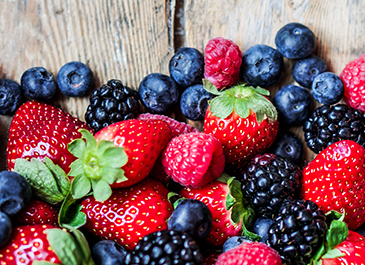This is the time of year when we really get vocal about local—local produce that is. August is BC’s peak harvest season, so locally grown goods are rushing in daily. But this season is fleeting, so take advantage of it and stock up on this province’s best bounty.
Since BC’s produce is precious, it’s important to store it properly. That accomplishes two things: 1) we get to celebrate these delicious treasures for longer and 2) we cut back on household food waste, which equates to about half of the food we bring home. Here are some handy tips on how to store seasonal favourites.
Apples: Store in a reusable produce bag or sealed container in the crisper or on the counter, separate from other produce. The ethylene gas apples give off cause other items to spoil quicker.
Apricots, Nectarines, Peaches, Plums: Store the ripe fruit in single layer stem-side-down on a fridge shelf or on the counter until ripe.
Beans, Broccoli, Cabbage, Carrots, Cauliflower, Celery, Cucumbers, Parsnips, Peppers, Radishes, Zucchini: Wrap in a reusable produce bag and store in the crisper.
Blackberries, Blueberries, Raspberries, Strawberries: Store in single layer on a tray covered with a towel. To freeze, line up on parchment-lined baking sheets, freeze until solid then transfer into freezer bags. Squeeze out the air before sealing to prevent freezer burn.
Cantaloupe, Honeydew Melon, Watermelon: Store whole and unwrapped, or cut and wrap in a reusable produce bag. Or keep them at room temperature if you plan to eat them within a few days.
Cherries: Store uncovered in a bowl.
Fresh Herbs: Wrap in a towel in a reusable bag or stand in water and loosely cover. Or freeze whole in plastic freezer bags.
Garlic, Onions: Store in a cool dry place away from other produce, otherwise other items will start to take on the smell of the onions and garlic and will spoil quicker because of the ethelyne gas that garlic and onions produce.
Green Onions, Scallions: Store in a reusable plastic bag or place the white ends in a jar of water, cover loosely and leave on the counter or in the fridge.
Leafy Greens: Wash and spin dry then wrap in a towel in a reusable produce bag and store in the crisper. Or leave the washed leaves in your salad spinner if it has a solid bottom. Simply leave a little water in the spinner, cover and refrigerate.
Tomatoes: Store at room temperature away from direct sunlight. You can cover with a towel if the fruit flies start to take interest. Tomatoes can also be frozen whole in plastic freezer bags.
To learn more tips for reducing food waste connect with FarmFolk CityFolk’s Foodprint initiative in Metro Vancouver and Love Food, Hate Waste in the United Kingdom. These programs are great resources for how to use leftovers and how to store food so it won’t spoil.

